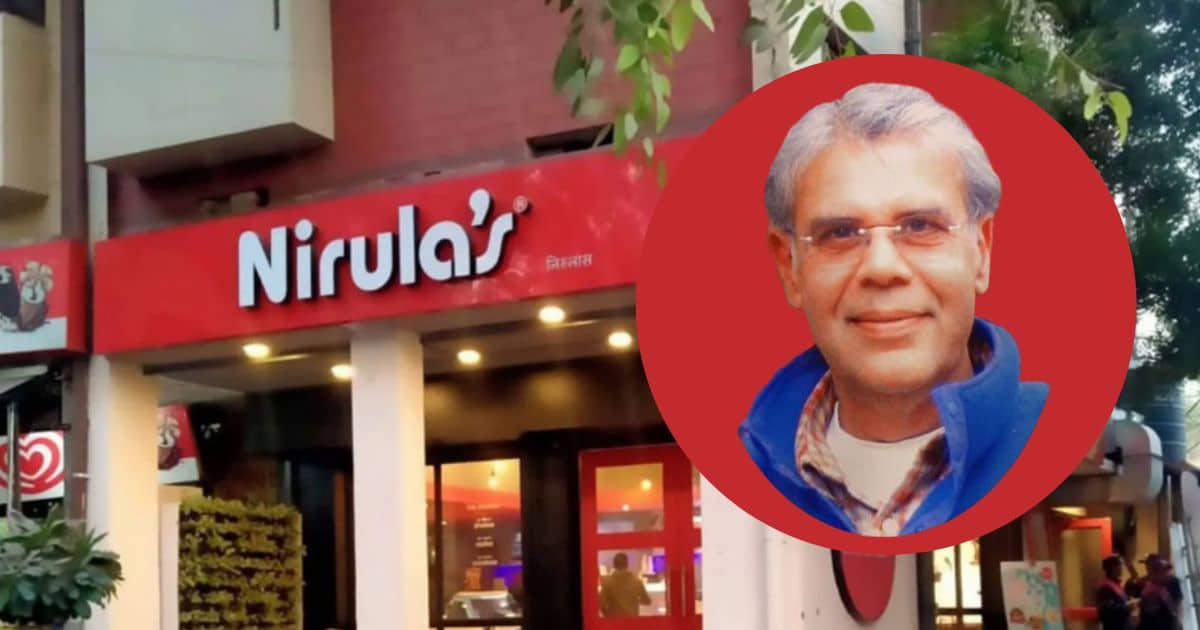In the bustling heart of Delhi, where the aroma of traditional delicacies permeated the air, a culinary pioneer named Deepak Nirula ignited a revolution that would forever alter the city’s gastronomic landscape. His recent passing on October 4, 2022, serves as a poignant moment to reflect on how Nirula, under his visionary guidance, not only satisfied the hunger of a city but also fueled its insatiable curiosity for diverse, global flavors.
I vividly recall the first time I stepped into Nirula’s Hot Shoppe in Connaught Place, a haven that would become synonymous with a new era of dining in Delhi. It was in the 90s, and on my birthday, I first tasted their infamous Chocolate Chip ice cream.
The atmosphere was electric with the strains of rock music and the scent of novel, mouthwatering offerings. And there, at the corner, forms were placed where kids only had to put their birth date and address and post it in their in-house letter box to avail of ice cream on their birthdays. What a novel way to collect data back in the day.

Deepak Nirula, a maestro in the culinary realm, introduced Delhiites to a world of fast food previously relegated to the realms of Archies comics and Hollywood sitcoms.
The menu was a revelation, featuring hamburgers, cheeseburgers, pizzas, and hot dogs—delicious concoctions that had, until then, been distant fantasies for Delhi’s palate. Nirula’s Hot Shoppe wasn’t just a restaurant; it was a cultural phenomenon that blended the accessibility of diners and cafes with the speed and affordability of mass production, creating an irresistible allure for the city’s denizens.
Deepak Nirula’s insight into the universal appeal of pizza, with its familiar crust reminiscent of Indian flatbread, paved the way for a culinary evolution. The Hot Shoppe’s success was instantaneous, and Nirula’s subsequent ventures, including the iconic ice cream parlor and the upscale PotPourri, became integral to the city’s dining experience.
In the 1980s and ’90s, Indian consumers’ palates underwent an unprecedented expansion thanks to the boom in quick-service restaurants (QSRs). While global giants like McDonald’s and Pizza Hut eventually made their mark, Nirula’s had already captivated Delhi with its imaginative menu and commitment to quality.
Deepak Nirula’s foresight, honed through studying restaurant administration at Cornell University, allowed him to tap into the zeitgeist of the time. The introduction of Indian-inspired pizza toppings like chicken tikka, capsicum, and onion showcased not just a keen understanding of flavors but also an astute grasp of local preferences.
Nirula’s was more than a dining establishment; it was a cultural bridge that connected Delhi to a world of culinary possibilities. As the 1980s and ’90s unfolded, a wave of experimentation swept through India’s metropolises, with a new generation of chefs and restaurateurs redefining the dining landscape.
While Nirula’s may not fit seamlessly into today’s culinary scene dominated by a focus on local, seasonal, and sustainable options, its legacy endures. The attention to detail, the dedication to freshness, and the genuine connection with customers were the hallmarks of Nirula’s success. The nostalgic outpouring on social media reflects not just a yearning for the food but also for the warmth and familiarity the brand provided.
Amid the changing culinary scene, Nirula’s offered more than just a menu; it provided an experience that made patrons feel at home and transported them to another world. The strategic move to offer free food to high-achieving students showcased not only business acumen but also a genuine commitment to the community.
As we reminisce about Nirula’s and its impact on Delhi’s culinary journey, we acknowledge that it was more than a restaurant—it was a cultural touchstone. Deepak Nirula’s legacy lives on not just in the memories of a bygone era but in the enduring influence of a visionary who dared to bring the world to Delhi’s plate.
Nirula’s may have been a product of its time, but its ability to make us feel at home will ensure its place in the rich tapestry of India’s cultural memory for generations to come.

